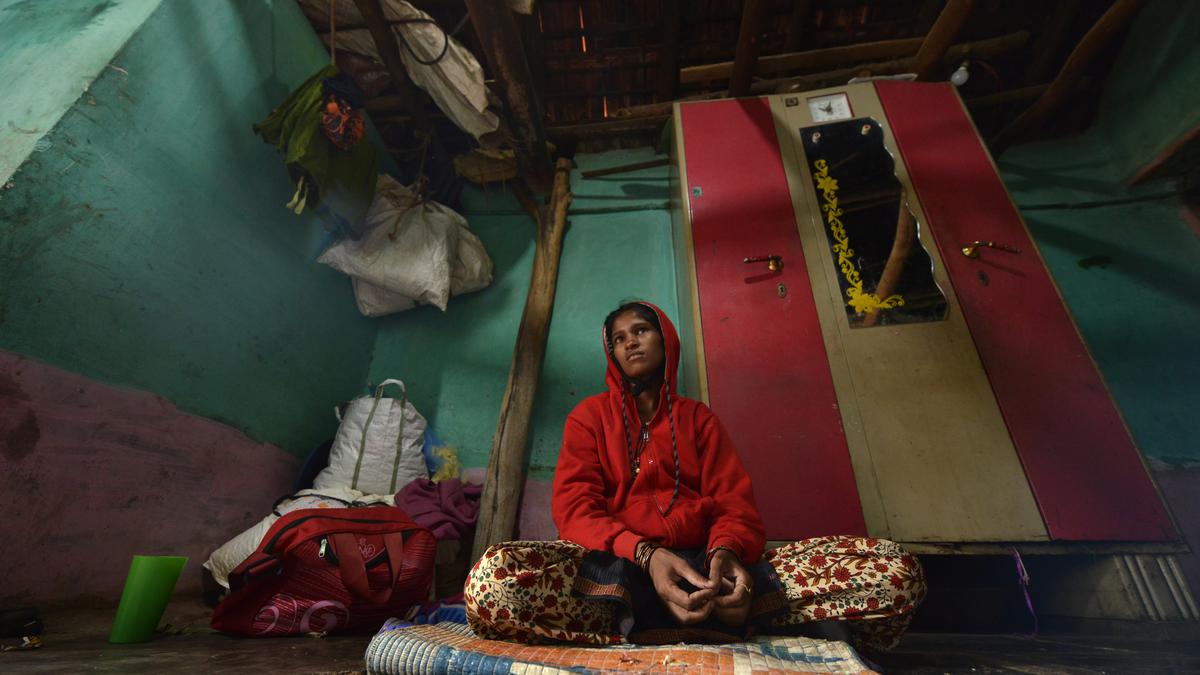
The tragedy of a tradition in Karnataka: Newborn and mother have to stay in a tent-like structure for four to eight weeks Premium
The Hindu
Kadu Golla community in Mallenahalli, Tumakuru, faces age-old practice of sutaka, where postpartum and menstruating women are kept in makeshift structures. This practice has been carried on for centuries, but is now being challenged by educated women in the community.
Just a few kilometres off Tumakuru district, a stretch of kaccha road leads to aGollarahatti (settlement of the Kadu Golla community) in Mallenahalli, a non-descript hamlet with mostly families who live in huts, a government school, and an anganawadi.
In a room of a particular home that can hold just about five-six people sitting close together is Vasantha, 23, clad in a faded red jacket with the hood over her head. She sits on a plastic mat, her eyes barely making eye contact with anyone. She does not speak much. Understandably so, because in the course of just over a month, she has lost two children.
This was the woman who had lost her baby allegedly due to an age-old practice among the Kadu Gollas, an OBC community in Category 1 (most backward). The traditional practice dictates that a newborn baby and the mother should stay in a makeshift tent-like structure (called gudlu) for a period of four to eight weeks, as the postpartum period is considered impure (sutaka).
Vasantha delivered twins, a girl and a boy, in her eighth month of pregnancy, on June 22. The boy died during the delivery, after which Vasantha and her daughter were brought to her mother’s house in Mallenahalli. Here, she was confined to a gudlu with her baby, even as monsoon rains lashed the village. The baby, who was not named yet, developed a fever and respiratory complications. She was taken to the hospital but died on July 23, putting the practice followed by the Kadu Golla community in the spotlight again.
A gudlu is a U-shaped wooden structure covered by tarpaulin, with an entrance that requires a person to hunch. Inside, there is a wooden plank for the mother to sleep on and a cane mora (usually used for winnowing rice) where the baby sleeps.
A group of Kadu Golla women — Neelamma, Nagamma, Gangamma, and Chikkamma — sit down in the small space around Vasantha and speak at length about the practice of sutaka. Postpartum and menstruating women are kept out of their houses in makeshift or semi-permanent structures for a certain number of days. They say this practice has been carried on for centuries; it is ‘normal’.
“This is an ancestral practice. If we do not do this, then it angers our god, and we do not want that,” says Nagamma. But they also take pride in saying that the practice is not as strict as it used to be.













